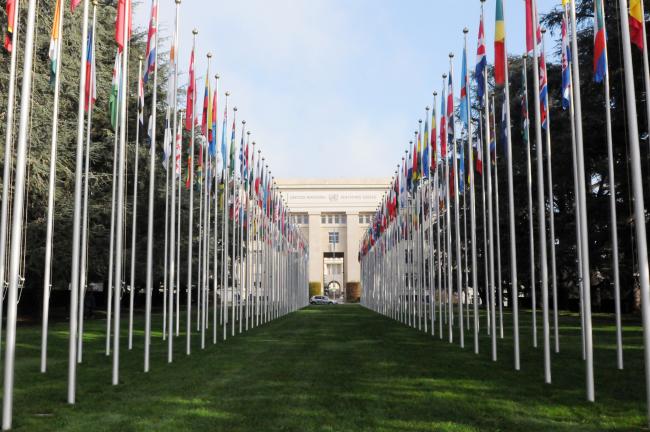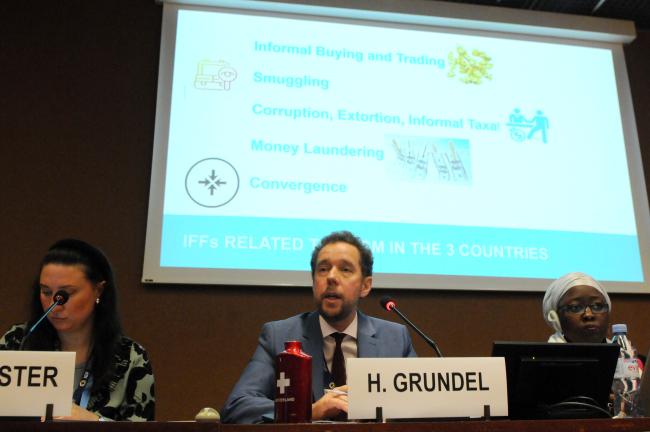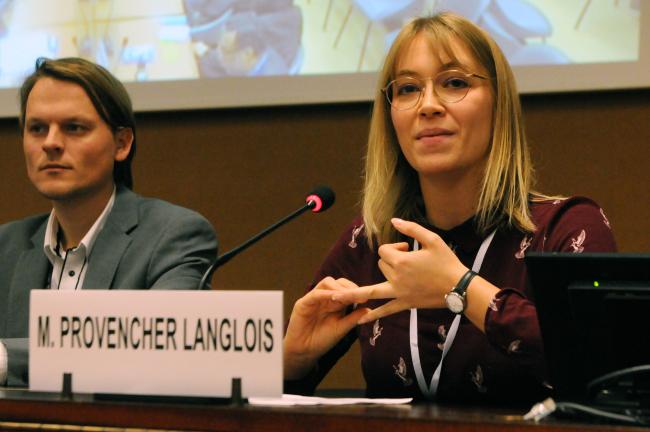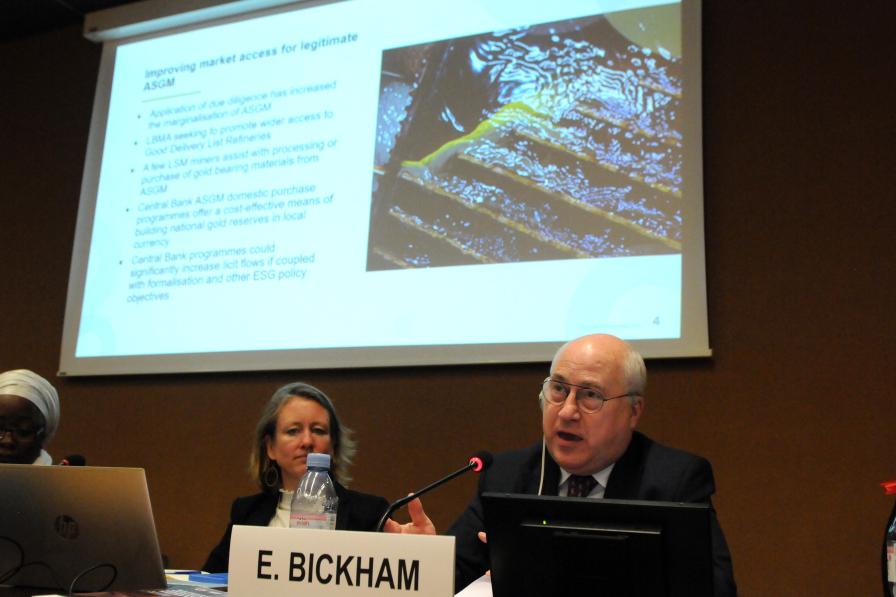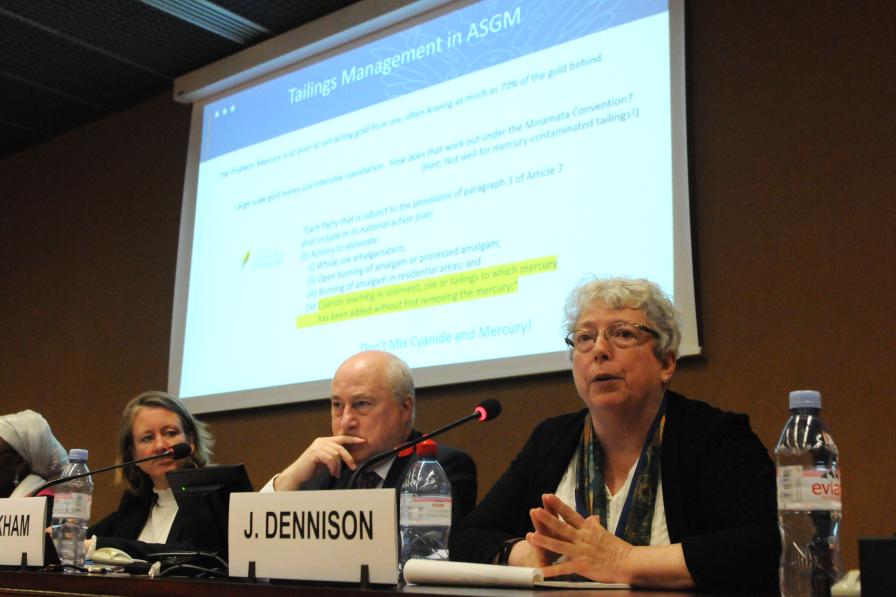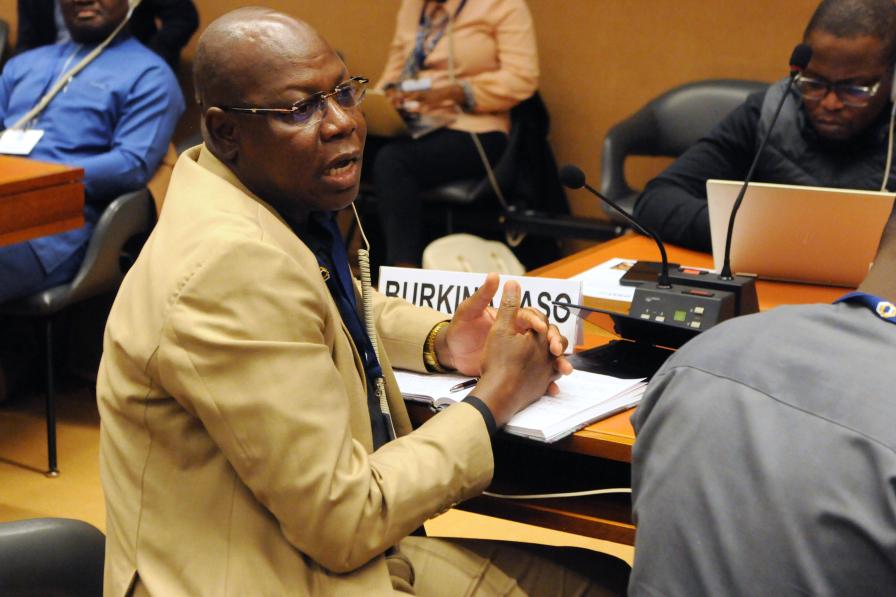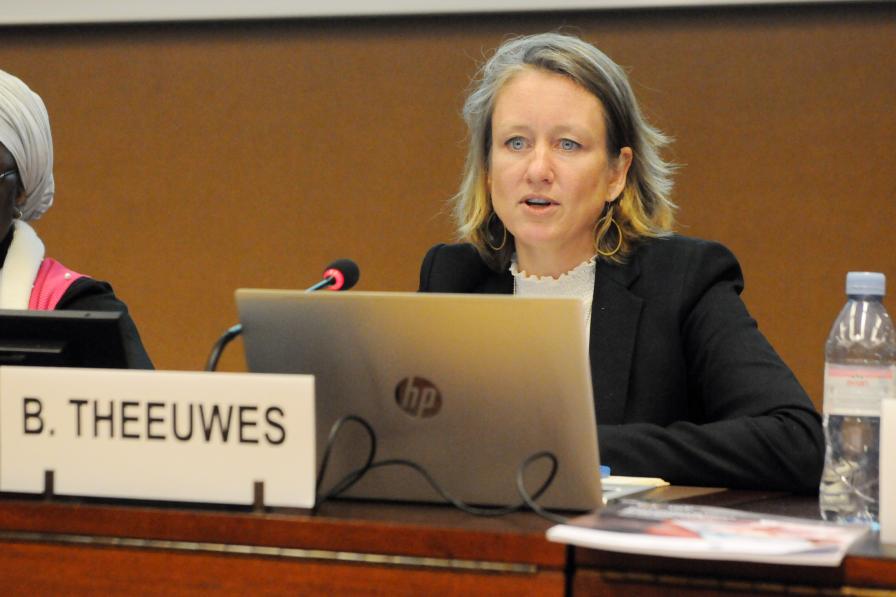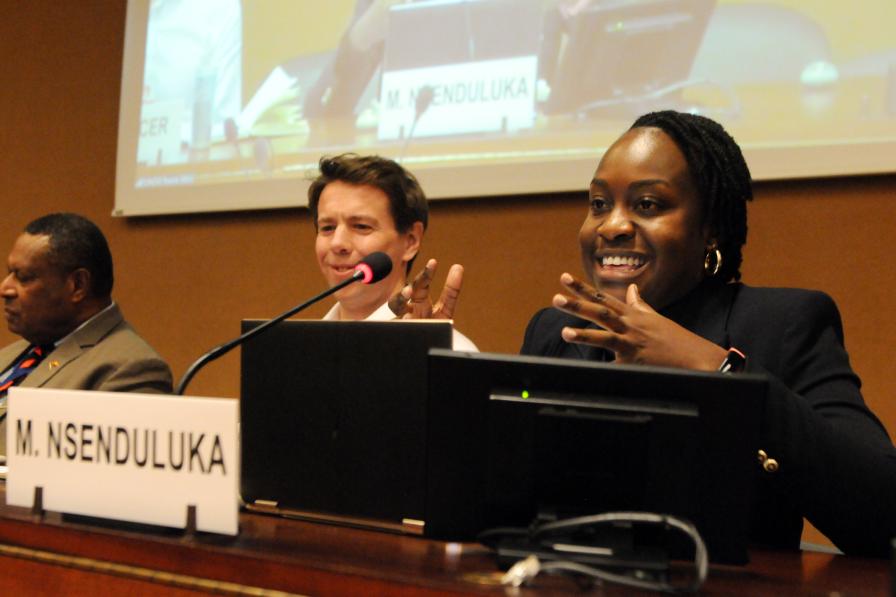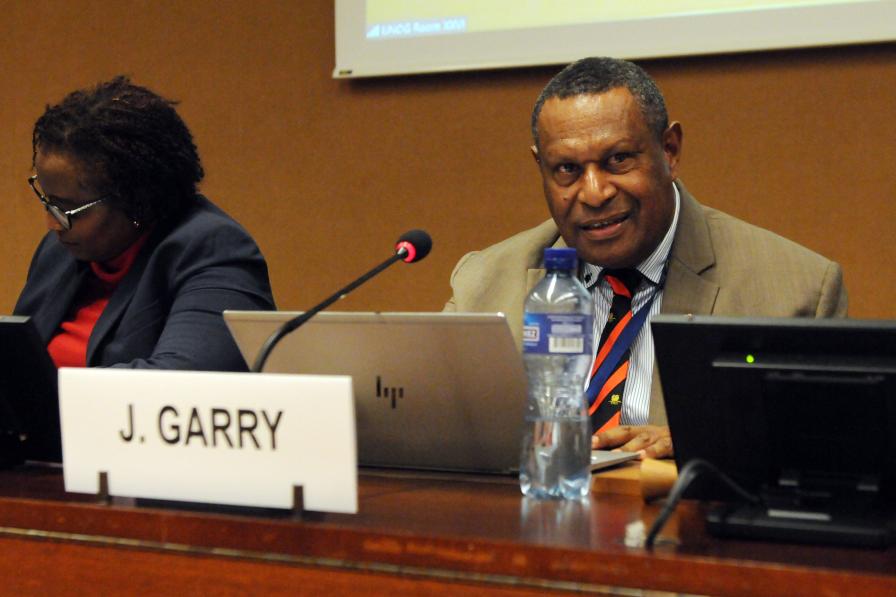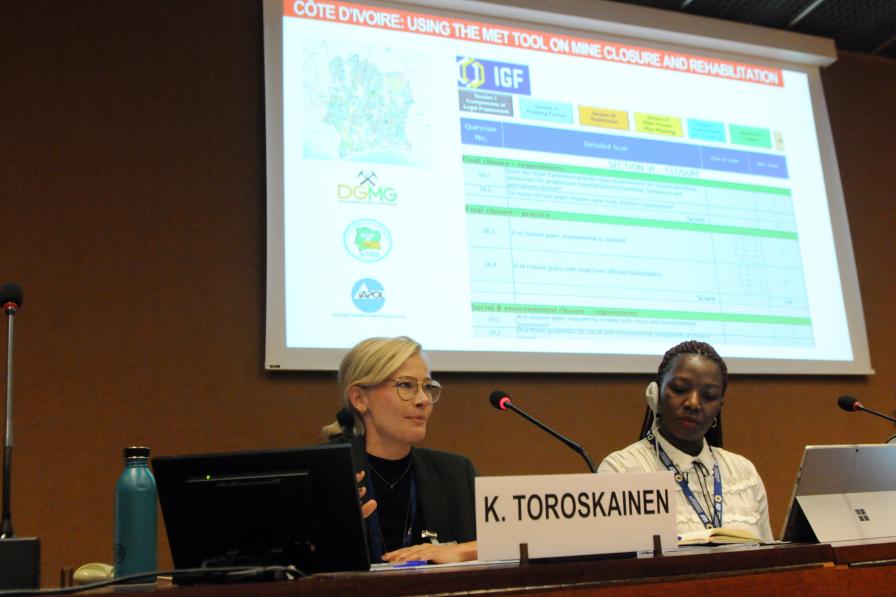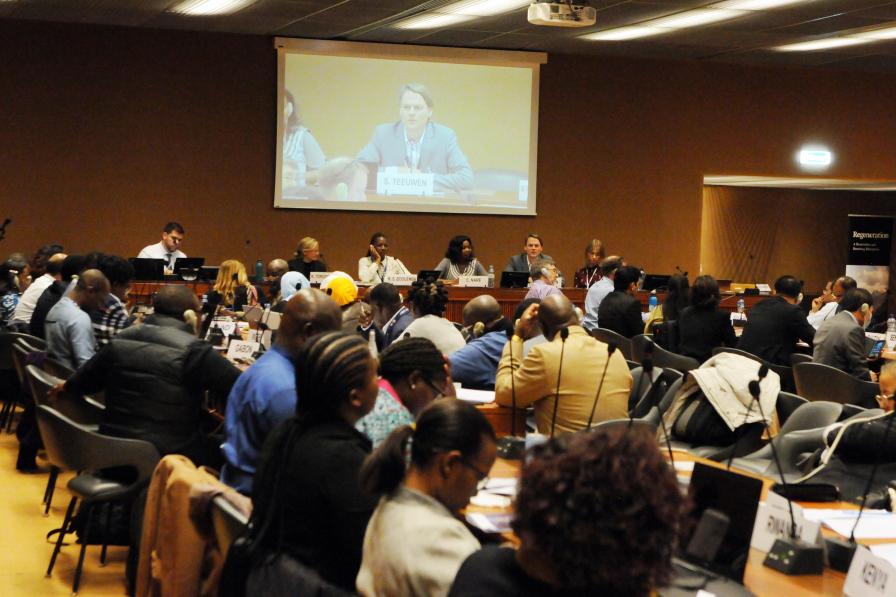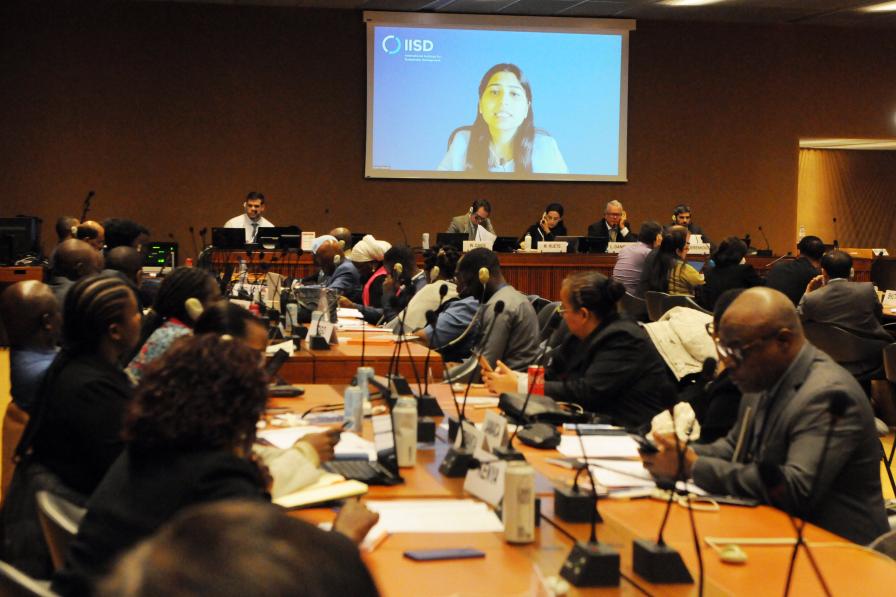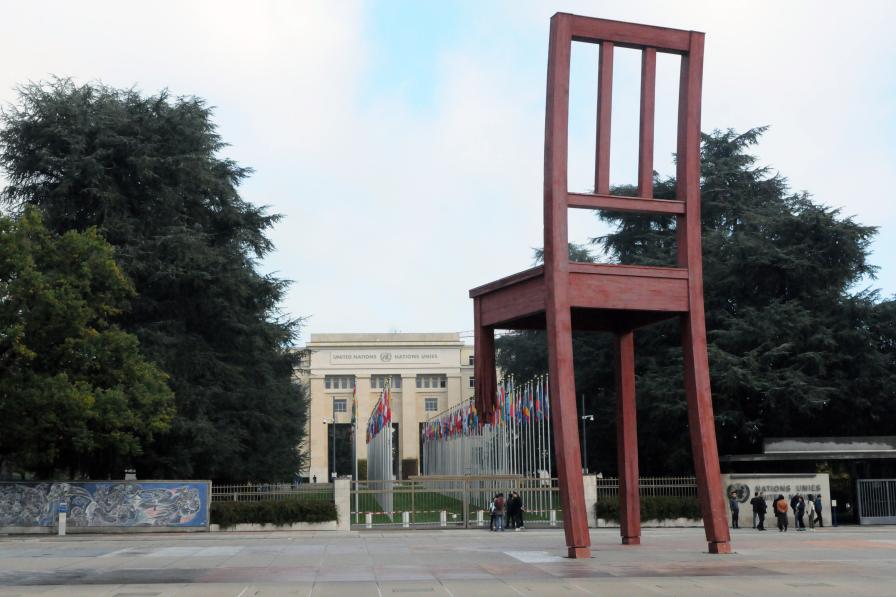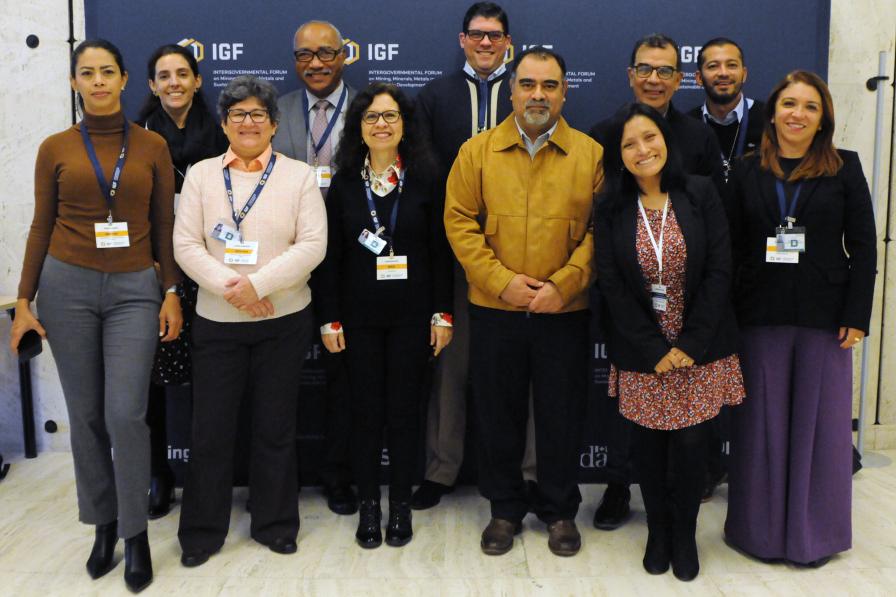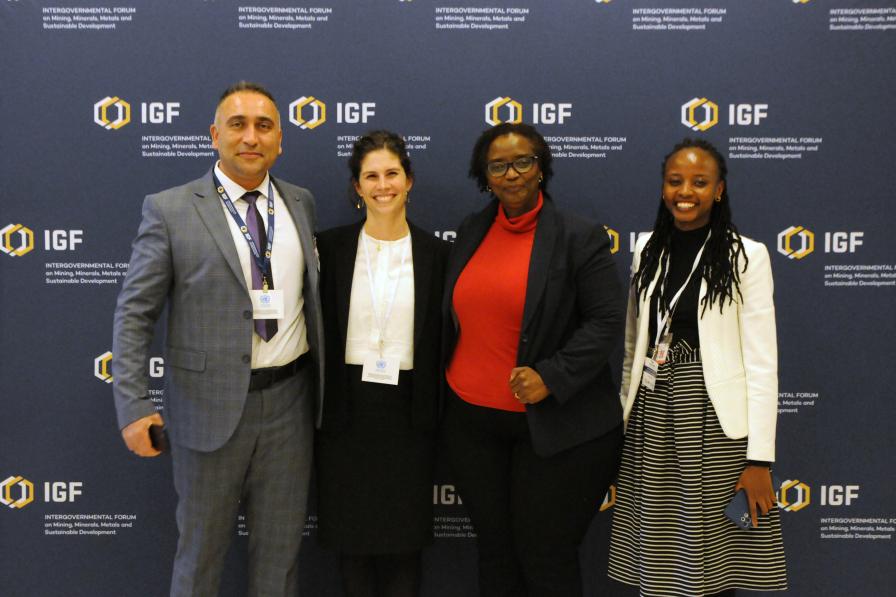Participants spent the final day of the 18th Annual General Meeting (AGM) of the Intergovernmental Forum on Mining, Minerals, Metals and Sustainable Development (IGF) discussing how to formalize and manage artisanal and small-scale gold mining (ASGM), exploring what the growing demand for critical minerals means for resource taxation, exchanging lessons learned from employing the IGF’s Mining ESIA Tool (MET), and discussing how to ensure local communities benefit and are made resilient during the mining rush to supply minerals for the clean energy transition.
On ASGM, Holger Grundel, Managing Director, Levin Sources, outlined key findings and recommendations from a recent study with IGF of illicit financial flows related to ASGM. Carlotta Schuster, UN Conference on Trade and Development (UNCTAD), cautioned that informal trade is not always illicit but urged curbing activities such as tax avoidance, human trafficking or money laundering through law enforcement. Edward Bickham, World Gold Council, emphasized contributing to ASM formalization through introducing the right incentives. Jane Dennison, Department of State, US, discussed challenges in seeking to reclaim tailings from ASGM, including local tailings governance, establishing ownership of the tailings, determining environmental liability, and identifying the responsible government ministry.
In the session on resource taxation, Viola Tarus, IGF Secretariat, presented on The Future of Resource Taxation project outputs, led by IGF and the African Tax Administration Forum, which included a variety of crowdsourced innovative fiscal measures. Jerry Garry, Mineral Resources Authority, Papua New Guinea, outlined several measures his country has taken to improve governance of minerals and metals. Mukupa Nsenduluka, Tax Justice Network Africa, stressed the need to connect discussions around the future of resource taxation with the “reality on the ground” in host communities. David Spencer, Anglo American, cautioned that there are a variety of economic factors that need to be considered when determining a tax regime. He encouraged governments to find the right balance between short- versus long-term tax revenues.
Regarding ESIA policy diagnostics, Rebecca She Zidouemba, Ministry of Mines, Petroleum and Energy, Côte d’Ivoire, and Kaisa Toroskainen, Deutsche Gesellschaft für Internationale Zusammenarbeit GmbH (GIZ), jointly presented a case study of how MET was used in Côte d’Ivoire as a monitoring tool to assess mine closures. Stephen Teeuwen, Netherlands Commission for Environmental Assessment (NCEA), discussed a variety of activities the NCEA undertakes to strengthen environmental assessment systems in Dutch partner countries. Noting that women are disproportionately affected by the social and environmental costs of mining, Marion Provencher Langois, IGF Secretariat, presented the results of a global review of implementing gender into mining impact assessments.
Opening the discussion on community resilience in a just transition, Swasti Raizada, International Institute for Sustainable Development (IISD), noted there is no single accepted definition of “just transition,” but suggested some common features. Tom Moerenhout, IISD and Columbia University Center on Global Energy Policy, offered lessons about working with local communities learned from the energy sector. William Davis, Natural Resource Governance Institute (NRGI), discussed ways to ensure that in the energy transition’s rush to get critical minerals, communities do not get treated by the mining sector as they have in the past. Noel Alonso Murray, Executive Director, Directorio Legislativo, described experiences in Argentina where communities participated in decision making regarding mine operations. Luke Danielson, President, Sustainable Development Strategies Group (SDSG), called for a generosity of spirit in dealing with communities instead of regarding them as risk factors and warned against elite capture through publishing agreements with mine companies.
In closing the 18th AGM, IGF Secretariat Director Greg Radford pledged that the IGF will continue to ensure that the mining sector optimizes the social, economic, and financial benefits of mining and promote “responsible mining and mining in an environmentally responsible way.” He closed the meeting at 17:56 pm.
All ENB photos are free to use with attribution. For IGF AGM-18 please use: Photo by IISD/ENB | Diego Noguera

